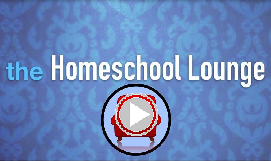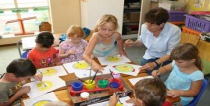Overview of BELA Bill provincial hearings 2023
And how you can help with what happens next.
The provincial hearings regarding the BELA Bill this year have been a hotly debated rollercoaster-ride all around, with many interesting developments and opinions from various political parties, the PCBE, home educating parents, alumni, and even home educated children. This article will provide a summary of the main highlights, covering various groups’ reasons for protesting or supporting different aspects of the Bill, and explain next steps from here.
How will the BELA Bill affect parents of school-going children?
The presentations given during the hearings can be grouped into three broad categories, namely BELA support, Student Governing Body (SGB)
powers and home educators. This is why it is also important to mention that the BELA Bill will not only affect parents of home educated children, but also parents of school-going children because it includes clauses regarding
- The sale of alcohol on school premises.
- Unisex bathrooms (which are unsafe and create increased opportunities for sexual abuse between children).
- Provisions that allow learners to obtain abortions without parental knowledge or consent.
- Comprehensive sex education that includes gender ideology that may not align with a family’s personal and/or religious values.
Who supported the BELA Bill and why?
Presentations in support of the BELA Bill typically support the Bill in its entirety but lacked substance in content and often seemed scripted and repetitive.
The DBE attempted to compensate for its neglect of informing the public about the Bill before tabling it at parliament by hijacking some of the hearings to do this.
Adv. Misser also put her foot in it, claiming that clause 37 is not intended to be curriculum-prescriptive, but this statement is nowhere in the Memorandum explaining the Bill or in the related SEIA. The clause requires compulsory assessments by external assessors, which is not enforceable across multiple curriculums based on varying content and skills. Worse, parents who use a curriculum that cannot be assessed for lack of informed assessors on that curriculum to compare their competence against the national curriculum, may be prosecuted.
Political parties:
- The ANC fully supports the Bill but rejected the sale of alcohol in schools and criticised safety issues, central procurement, infrastructure, transport, and discipline in schools. They also support the restriction of home education as it undermines the education system and social cohesion.
- Employees of the Gauteng government, SANCO, SGBs, COSAS, ECDs and NASGB supported the Bill except for the selling of alcohol and financial reporting requirements.
- SACP, SAPA, and many ANC members supported the Bill on the basis of mother tongue education. Another ANC member in one of the hearings supported the Bill and rejected home education, saying, “Homeschooling must be regulated and be in line with our government curriculum. We cannot allow homeschooling to be independent.”
- The SACP is also inclined to think that home education is a type of apartheid system.
SAOU, FEDSAS & Afriforum partially supported the Bill but rejected the removal of SGB powers in support of communal identities and because they see it as unconstitutional and harmful to the quality of education.
SADTU members complained that home education created inequality, an imbalance, helping only the privileged, separate from society. They claimed that the Bill could help address imbalances of the past. At one hearing, a SADTU and ANC member also said, “On the issue of homeschooling. We've got one government and we must have one educational system. Homeschooling must be regulated.” - NTU, SA Principals Association, and NAPTOSA also supported the Bill but with little grounds.
- ECED supported the Bill but also objected to selling alcohol at schools, closing small schools, and provisions for pregnant learners.
- NCED supported the Bill, claiming that they only want to monitor that children get an education.
- The SA Communist Party object to the dominance of English and Afrikaans in schools.
- A representative of the Pan South African Language Board also supported the Bill.
- A school learner also asked for home educated learners who are performing well to be investigated.
- Some principals complained about the difficulties in placing children returning to mainstream school, others at least rejected the criminalisation of parents and the abolition of corporal punishment without providing an alternative.
- Some supporters of the Bill accused those who oppose the Bill as racist and apartheid-supporters.
- One EFF presenter insinuated that home educators teach their children racism and how to rape. He is also complained that it’s unfair that home educated learners get a better education than those in schools. Some stated that home education is an insult to teachers and children who must sit in schools in the cold.
- A PED employee supported the Bill because it provides clarity on closing small schools.
Overall, supporters tend to believe that centralisation can solve most problems, while opposers believe the opposite. However, it is evident that just the opposite is in fact true – centralised services such as power, trains, and roads are failing in SA while decentralised services such as shops and taxis work better.
It is ironic that most supporters of the Bill don’t believe that it will resolve the concrete, obvious issues in education such as overcrowding, infrastructure, teacher absenteeism, crime, etc. A DA member articulated this bonanza of irrationality as “Chicken voting for Nandos.”
Who rejected the BELA Bill (in part or entirely) and why?
SGB groups in the provinces partially supported the Bill or rejected it, mainly rejecting the clauses that remove their power to decide on admission and language policies. Their arguments were complex, supporting some clauses and rejecting others, basing them on legal and constitutional grounds, and lacked concrete examples of how the Bill would affect real people.
The homeschool community rejected clause 37 of the Bill with persuasive yet simple arguments, requesting the removal of this specific clause because it infringes on rights of parents to customise education for their children, and it is not based on research or collaboration. It is a doable request coming from parents who would be severely affected by it. Presentations by home educated learners served to further drive home the point.
One home educating mother presented the perspective that the Bill will limit learners with special needs even more than schools already do, which implies that the Bill discriminates against home educators.
An education consultant proposed that the Bill should make provision for home education and cottage schools and even be subsidised. This was echoed by a teacher in Johannesburg.
Political parties:
- The DA showed support for home education and for SGBs, saying that the removal of SGB powers infringe on the right to mother tongue education and SGBs know what is best for their schools.
- The ACDP showed support for home education, rejecting the enforcement of comprehensive sexuality education, and objecting to giving the minister regulatory powers without accountability. They also opposed the clause on the closure of rural schools and learner pregnancy provisions that would allow learners to obtain abortions without parental consent.
- The EFF had one speaker (in Rustenburg) who rejected the Bill.
One ANC presenter in Mahikeng suggested that home education programs be introduced in schools. - An FF+ member pleaded with government not to interfere in a parent’s God-given responsibility to raise godly children.
- Some members of VF+, Afriforum, and DS also opposed the Bill in favour of keeping the SGBs powers.
- Solidarity rejected the Bill, especially the clauses on language and admission policies. They also, with the DA stated that the Bill conflicts with the constitution.
The Bill is also in conflict with international law and Biblical principles. The focus is often more on the education system than the best interests of the children whom it’s supposed to serve. It is interesting that at the same time, home educators are saving state funds, reducing the burden on limited and overcrowded public schools.
It is discrimination to require home educators to be externally assessed from foundation phase while school learners are only externally assessed in matric. Even some schoolteachers and principals agree that assessment is unnecessary and irrelevant to home education.
Home education introduces more languages and curriculums which is a positive, not a negative, potentially enabling communities to decide on curriculum.
Other concerns aired in both the support and rejection of the Bill include:
- A lack of opportunities for children with special needs.
- The child is not consulted in clause 37.
- The sale of alcohol in schools.
- Protection of education in home language.
- Scrapping of feeder zones for schools.
- Overcrowded schools and a lack of new ones being built.
- Opposition to gender policies and unisex bathrooms.
- The BELA Bill does not address what is important to the public — access, transport, safety, infrastructure, discipline, or procurement.
- The problematic registration of alternative schools and the suggested higher penalty for operating non-registered schools.
- The closure of rural schools without feasible alternatives.
- A need for alternative educational institutions to be able to register more easily.
- Certain arguments are used both in favour and rejection of the Bill such as the sale of alcohol, reporting requirements, and mother
- tongue education.
- A request for virtual hearings.
- There is a lack of formal representative structures for home education and the NEPA should be amended to address this.
- Provisions for pregnant learners are a problem on moral and parental grounds, as well as practical grounds. Additionally, many learner pregnancies are caused by teachers, and the Bill allows these same teachers to facilitate abortions for those learners!
Home education — the increasingly obvious solution to SA’s education problem
The minister of education is stuck between a rock and a hard place, having been forced to admit that clause 37 has no basis in research, which is akin to a doctor prescribing treatment without a diagnosis. Additionally, the SEIA done for the Bill also does not include consideration of the impact of clause 37.
During the oral hearings in parliament, evidence was presented to the PCBE that clause 37 was drafted with malicious intent, making it even clearer that there is not only a lack of clarity but also an ulterior agenda at work.
The PCBE did not take well to criticism as arguments presented increasingly highlighted the problems with the Bill, and the arrogance of those attempting to steer it onward. At many of the hearings, they would mute cheering or cut speakers short, some would fall asleep, leave the hall early, fiddle on their mobile phones and make limited eye contact. There is a lack of taking responsibility for the Bill. Most often, it was only the ACDP and DA who engaged meaningfully in the hearings.
The mobilization of more DBE and NCED employees and union members to oppose the Bill with blatant lies and unfounded accusations of racism did not deter the homeschool community from making their presence heard and felt at almost every hearing, and they will not be easily silenced!
The fact is that the current education system was designed 200 years ago to produce compliant factory workers for the first industrial revolution. It is no longer relevant nor constructive, leaving in its wake broken communities, struggling, bullied and raped children who are ill-equipped for a vastly different digital working world.
Home education is well positioned as education that happens in a safe environment without requiring special infrastructure, no discipline problems on a large scale, manageable transport, and procurement.
Counter arguments to the home education narrative were intriguing, ironically proving that home education has genuine potential to close the gap between the broken mainstream educational infrastructure, lack of resources, struggling families, and students’ ability to succeed at university.
Religion, culture, and the BELA Bill
A growing number of speakers also objected to the Bill (and clause 41) on religious grounds, pointing out that the responsibility for education is given by God, making it irrational to require parents to ask for permission because the authority of God is higher than that of government. It is irrational that parents must ask permission from a lower authority to execute a responsibility demanded by a higher authority.
Home educators pointed out that home education is helping other learners by reducing the burden on the public school system that is overcrowded and unable to place thousands of learners annually.
Cultural opposition to the Bill is about the Bill entrenching a Eurocentric and globalist form of education.
It is intriguing that those in support of the Bill claim that home education creates inequality while the opposite is true — it provides more children in a variety of circumstances to access education and curriculum best suited to them, equalising access!
On the one hand, they want uniformity while also claiming to support diversity. That is impossible, especially when you consider the striking diversity of the home educators who presented at these hearings — people from different races, single mothers, professors, therapists, pastors, religious leaders, teachers, doctors, alumni, home educated learners as young as six, etc. This diversity makes the opposition’s desperately inflammatory racist rants look even more preposterous.
More details and videos on presentations given at these hearings can be viewed HERE
Questions about the powers of the state versus God in education
- The entire process has surfaced interesting questions:
- Where is the highest authority — with God or government?
- And does the government recognize God and His authority in any form?
- If so, what does that mean for the future of education and affected families?
- What is the authority and responsibility of a parent really worth?
One young home educated learner articulated it this way:
“Through this Bill, government wants to replace my parents and their right to educate me in terms of our shared family values. Government wants to cut the legs out from under my parents and yet in my everyday life it is my parents who are there for me, not government. I do not give the minister of basic education the right to replace my parents’ authority in my life. Ministers come and go, but my parents are irreplaceable. The minister seeks this power over me today, but the minister does not even know my name. But my parents are my custodians. They've been there before my beginning. They're still here for me. Where's the minister? Where will the minister or the schoolteachers be in the middle of the night if I or my peers have an adverse reaction to medical procedures received at school without our parents’ knowledge? Will the minister or any teacher be there when we need to be rushed to hospital and can we cry to the minister when we are in trouble? And will the minister help us better than our parents can? This Bill wants to instigate us children to undermine our parents.”
What is next in the fight against the BELA Bill?
The government allowed for home education in the SA Schools Act in 1996 because they probably hoped that it would remain a fringe phenomenon. The census of 2012 made it apparent that it is becoming mainstream. The minutes of the Council of Education Ministers reveal that the government wants to use policy and law to deter home education and the Bill is an attempt to regulate it out of existence.
The homeschool community is making its voice heard with more conviction and more powerful, persuasive arguments at every opportunity, clearly fortified with proof, experience, research, and most poignantly, the voices of the families who have achieved great success in academics and their careers.
Mahatma Gandi said, “First they ignore you, then they laugh at you, then they fight you, then you win.” The battle is still on and a long way from over. The oral and written submissions given at these provincial hearings will be summarized and scrutinized. Then, hopefully, they will amend the clauses with due diligence and consideration before submitting the Bill to the National Assembly for another round of public comment.
We will mobilize again to make our voices heard for the best interests of both home educators and all learners in general.
You can help by:
- Joining your provincial WhatsApp group and the Pestalozzi Trust for regular updates and important notices.
- Follow SAHomeschoolers.org on Facebook.
- Understand what is at stake and educate your children on the subject as well so that they can discuss it with their friends. The youth have every right to be heard on this subject since it affects them the most and they are our future!
- Carefully consider what your right to educate your children in a way that is in their best interest, means to you. Consider the impact and the importance of their future, their safety, their health, and well-being. All these precious freedoms you hold dear are on the line!
- Spreading awareness in your community by talking about the impact and problems with the BELA Bill with your friends and family, with other parents, your churches, and social groups.
- Be ready and do your best to join the next round of hearings when the time comes next year. It is a crucial time in SA’s education history and future!

Comments
Events
Legal & Research
Centres
Homeschool ABC
Support
Curriculums
Impaq: Homeschool & Online ...
Impaq: The leading homeschooling curriculum provider in South ...
Cambridge & International ...
As of 1 January 2025, Macmillan Education is the sole agent ...
Has no content to show!































